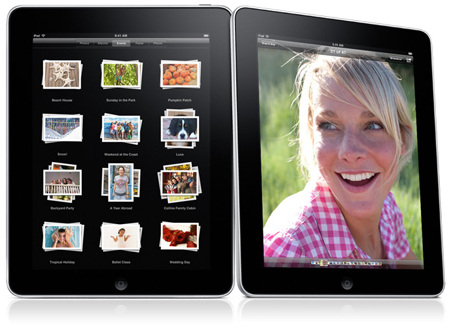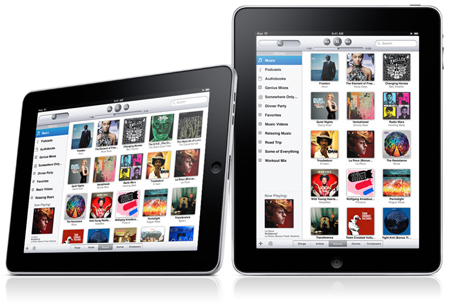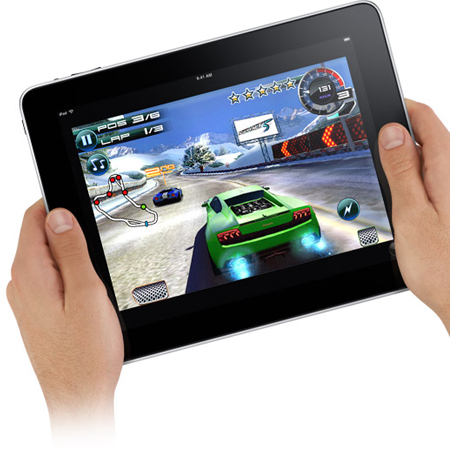Dawn of the iPad generation?
Whilst others have attempted to trim the PC down to a 10in or smaller form factor, Apple has found itself heading in the opposite direction by expanding a smartphone OS onto a larger device.
And herein lies arguably the iPad's biggest strength - it isn't a replacement for the netbook or e-reader, it's a new form of device that could revolutionise the computing industry.
Unlike a traditional PC, the iPad - right out the box - is a portable device that provides popular everyday functions such as web access, email, photos, music, videos, games and ebooks. Yet, these simple features are provided with such style and attention to detail, it could be argued that the iPad will offer the best experience in many of the aforementioned areas. Early device impressions have revealed a common trend in hands-on user opinions - with words such as "speed", "smooth" and "slick" used often.
The computing industry has long hoped to place a computer within every room in the house - and a single iPad could do it. For the average consumer - to whom checking Facebook and managing photos is a common usage scenario - the iPad becomes an ideal companion in the kitchen, living room or bedroom.

Should a user wish to do more, they'll need to find an app. Fortunately, there are already hundreds of thousands available, covering every conceivable task most users could think of.
There's also a matter of usability. Unlike notebooks and PCs, the iPad is instantly accessible by almost anyone. I recently put together a PC for my future mother-in-law as a Christmas present, and when I told her she could listen to music whilst surfing the web, it literally blew her mind - she was adamant that she wasn't ready for two computing tasks at any one time. She was still getting accustomed to the mouse! Would she be more comfortable with an iPad? I think so.
I suppose the question we need to answer is this; does the iPad fulfil a need? The answer, surely, is yes. For everyone who has ever wanted an affordable computer that just works, this could be it. Starting at $499 US dollars, the iPad is an instant-on device that provides a web and email experience that's arguably second to none - and, for the mainstream consumer, that's exactly what's required.
Tomorrow's computing device is more likely to be content-centric, with hardware quickly becoming less important. In the iPad's favour, it'll ship with what is widely regarded as the biggest and best application store, as well as iTunes - offering users instant access to the world's biggest library of music, movies and books. With a captive iTunes and App store audience, content providers are likely to continue to favour Apple's platform, and we can expect to see a wave of iPad-specific apps making full use of the form factor.

Let's also not forget that this is the first-generation iPad device. Cast your memory back and you may recall that two of the most successful consumer electronic products of all time - the iPod and iPhone - were regarded as underwhelming when they were first introduced. Indeed, the original iPhone had glaring faults of its own - it didn't support 3G networks, included no GPS, and wouldn't allow users to copy and paste! Who would have thought that same device - albeit now revised as the iPhone 3GS - would become one of the most successful devices of all time?
It's almost a little clichéd, but the iPad's ultimate lure is that it just works. Like the iPod and iPhone before it, it misses certain features and won't do everything everyone requires, but what it does do it'll do with a sense of style and efficiency that few manufacturers can replicate.
There are, undoubtedly, a few immediate problems. But should this device obtain Flash support, a built-in webcam and multi-tasking functionality - all of which aren't outside the realms of possibility for future revisions - the iPad could be on its way to becoming revolutionary.














